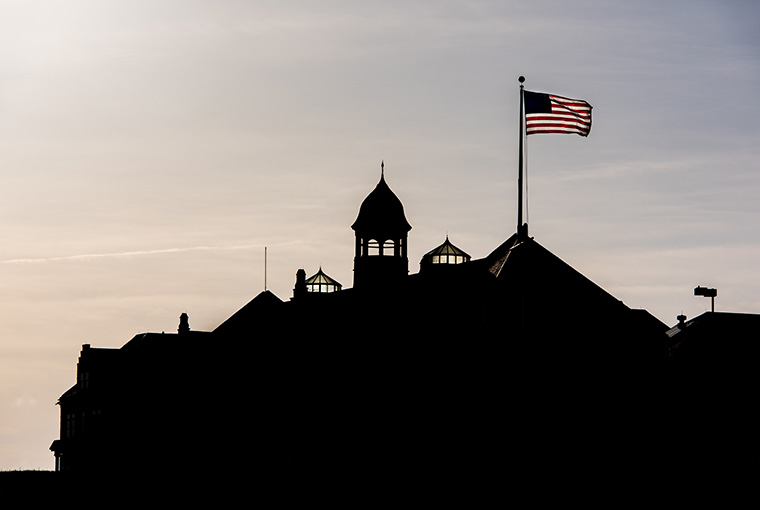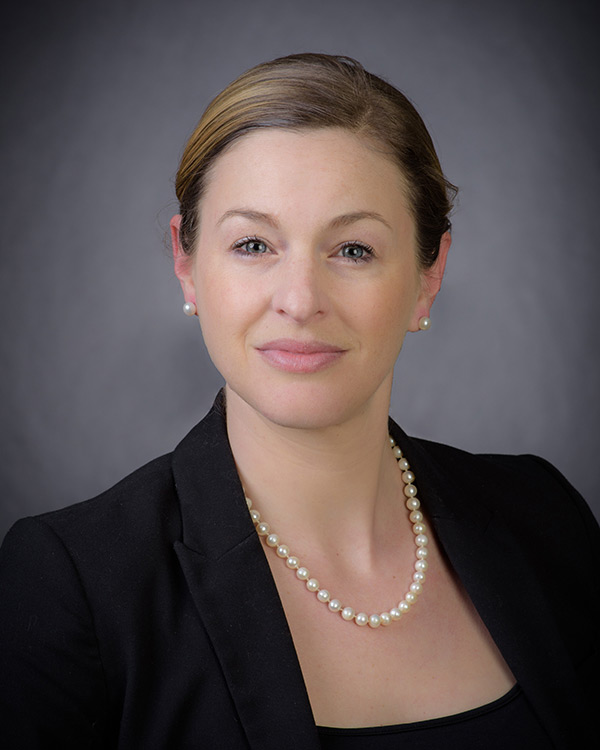Faculty Spotlight on Lindsay Cohn: Dissecting the military draft, and the study of why people serve


(U.S. Navy photo by Jaima Fogg/released)
Lindsay Cohn would have been an Army military police officer except for two things: Her wrist and her foot.
On an Army ROTC scholarship at Duke University, Cohn suffered several injuries during training. The damage to her wrist was bad enough to kill any future military career.
After graduation she faced the question: Now what?
“I had no plan B,” Cohn remembers. A professor suggested that she would be a good candidate for graduate work—something Cohn had never considered. “I had no idea what you did in Ph.D. school.”
But she loved her undergraduate major—political science, with minors in medieval history and linguistics—and she chose to continue down that path.
Now, an associate professor in the Department of National Security Affairs, Cohn’s research focuses on the manpower dynamics of militaries in developed democracies.
It’s a reflection of her personal and professional interests: Her father, a career Marine Corps lawyer, moved the family around the globe. This helped generate a fascination with civil-military relations, here and abroad.
“I became interested in this question of who decides to join the military, and why do they do that. And then, why do they stay or leave?” Cohn said.
Her early work, including for her dissertation in 2007, focused on the European Union, labor markets and military retention. As her reputation as an expert grew, she was often called on by the press for her thoughts on how the Great Recession would affect U.S. military recruiting.
But Cohn found herself continually drawn to the civil-military questions raised by long-term wars being fought far away in Iraq and Afghanistan.
“What are the social implications of this kind of foreign policy activity? Are the people actually exercising oversight over the government, in terms of how it uses the people who volunteered to join the military?” she said. “Those questions have been actually more interesting to me than the manpower ones.”
Now Cohn’s academic lens is focused on the military draft.
Her current research looks at whether there’s a link between the draft and Americans feeling connected to U.S. troops fighting abroad.
“One of the things we hear a lot now is, ‘If only there were a draft, people would care and pay attention, because they’d be at risk of something themselves,’” Cohn said. “What was fascinating to me was that that argument was exactly the opposite during Vietnam.”
During Vietnam, U.S. leaders thought that using the draft—which is weighted toward young people instead of older people with families and businesses—would be less disruptive to U.S. society and therefore would make the war more palatable, Cohn said.
But, now, the call to reinstate the draft is largely based on the perception that most American civilians don’t feel the pain of our current wars and what it means to serve.
Cohn and fellow Naval War College professor Jessica Blankshain have completed phase one of a study on this issue.
They surveyed 1,000 people to examine what influences support of military action: Are people more likely to criticize war if it’s expected to be expensive and lead to heavy casualties? Or, are they more likely to be against war if they themselves might have to serve?
The answer—which is under review for journal publication—is that the expectation of personal risk has no impact on whether someone supports war.
The next phase of their research is looking specifically at the idea that American opinion on the military draft has “flipped” since Vietnam.
“What’s interesting to us is, why is it now that people think the draft would be so socially disruptive that it would be really problematic politically? But mobilizing the guard and reserves isn’t seen as a problem,” she said.
Cohn includes her military students in the discussion of her research findings in the elective course she teaches on civil-military relations.
She also teaches policy analysis and strategy as part of the college’s core curriculum. She joined the faculty in 2014 following a five-year stint educating undergraduates at the University of Northern Iowa.
“This is teaching a different set of students—older, with work experience, master’s level,” she said. “It’s always attractive to an educator to teach people who you think can really use and apply what you are going to teach them.”
